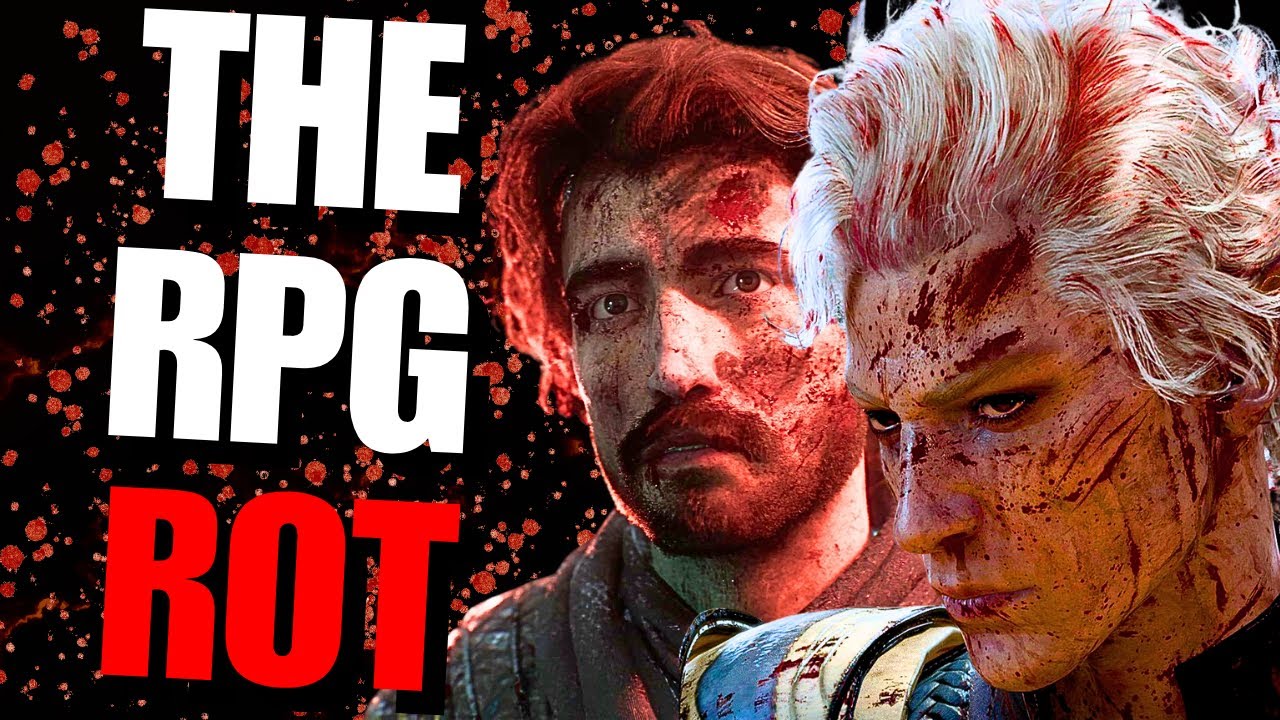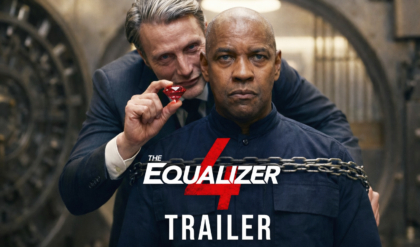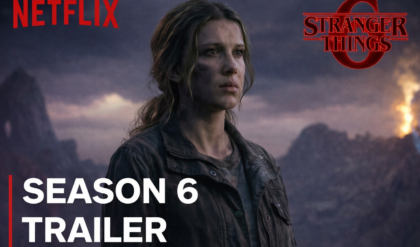How Baldur’s Gate 3 and Clair Obscur Expose the Rot in Modern RPGs
For years, the AAA gaming industry has fed players a persistent narrative: turn-based RPGs are dead, complex systems are unappealing, and players crave streamlined experiences stripped of stats, choices, and consequences. Publishers claimed the only path to success was gutting depth in favor of flashy action, microtransactions, and market-tested formulas designed for mass appeal. Then came Baldur’s Gate 3, a Dungeons & Dragons-based CRPG from Larian Studios that obliterated these assumptions with 15 million copies sold and a Game of the Year sweep in 2023. Now, Clair Obscur: Expedition 33, a turn-based JRPG from indie studio Sandfall Interactive, has followed suit, selling over one million copies in three days and earning a 9.7 Metacritic score in 2025. These breakout hits aren’t just successes—they’re a reckoning, exposing the rot in modern RPG development and proving that players never abandoned deep, story-driven gameplay. The industry did.

The Industry’s Big Lie
The decline of traditional RPGs began in the late 2000s, when publishers like EA and Ubisoft shifted focus to action-oriented, broadly appealing titles. Turn-based combat, intricate stat systems, and branching narratives were deemed niche, with RPG audiences supposedly capped at five million players. Developers were told to “streamline” their games—code for removing complexity to chase trends like live-service models or open-world action. This led to diluted RPGs that prioritized monetization over depth, with microtransactions, battle passes, and simplified mechanics replacing the genre’s core strengths.
Former BioWare lead writer David Gaider, known for Dragon Age: Origins, has been vocal about this shift. During his time at EA, he witnessed publishers dismiss entire genres based on outdated market data, insisting RPGs couldn’t grow beyond a finite audience. The result was a string of compromised titles, like Anthem or Mass Effect: Andromeda, that sacrificed narrative and systems for mass appeal, only to underperform. Gaider argues that this obsession with de-risking games through market testing and monetization dilutes what makes RPGs special: their ability to captivate a dedicated audience with depth and authenticity.
Similarly, Fallout creator Brian Fargo and New Vegas director Josh Sawyer have criticized the industry’s lack of faith in RPGs. Fargo, who chased the Baldur’s Gate license for years, praised Larian’s success as proof that players crave ambitious, systems-driven games. Sawyer, now at Obsidian, noted that the conditions for Baldur’s Gate 3’s development—years of iteration and creative freedom—are rare in an industry driven by short-term profits. These veterans agree: the genre wasn’t abandoned by players; it was buried by publishers who misunderstood its appeal.
Baldur’s Gate 3: A CRPG Revolution
In August 2023, Baldur’s Gate 3 shattered the industry’s narrative. Developed by Larian Studios, the game embraced the complexity of Dungeons & Dragons 5e, offering tactical turn-based combat, deep character customization, and a narrative with branching paths that reacted to player choices. With over 400 developers and three years in Early Access, Larian refined the game through community feedback, avoiding publisher pressure to rush its release. The result was a cultural phenomenon: 15 million players, a 96/100 OpenCritic score, and multiple Game of the Year awards.
The game’s success stemmed from its unapologetic commitment to player freedom. Players could solve quests through combat, stealth, dialogue, or creative environmental manipulation, with outcomes shaped by dice rolls and moral decisions. Companions like Astarion and Shadowheart offered rich, evolving stories, while the game’s world, from the Underdark to Baldur’s Gate itself, rewarded exploration with lore and loot. Unlike AAA RPGs that prioritize cinematic setpieces, Baldur’s Gate 3 trusted its audience to embrace complexity, proving that CRPGs could appeal far beyond a niche.
Larian’s approach also rejected modern monetization trends. The game launched at $60 with no microtransactions, battle passes, or paid DLC, relying instead on quality to drive sales. Post-launch, Larian added free updates, including new endings and features, reinforcing their commitment to players over profits. This player-first philosophy, combined with the game’s depth, exposed the AAA industry’s obsession with “streamlining” as a hollow excuse for chasing revenue over substance.
Clair Obscur: Expedition 33: The JRPG Resurgence
In April 2025, Clair Obscur: Expedition 33 arrived, proving Baldur’s Gate 3 was no fluke. Developed by Sandfall Interactive, a small French studio founded by ex-Ubisoft developers, this turn-based JRPG sold over one million copies in three days, outpacing recent JRPGs like Metaphor: ReFantazio on Steam despite a Game Pass launch. With a 9.7 Metacritic score and 3.3 million players by May 2025, it’s been dubbed the “JRPG equivalent of Baldur’s Gate 3” by David Gaider, a comparison echoed across gaming communities.
Clair Obscur blends a painterly aesthetic inspired by Belle Époque France with JRPG staples: turn-based combat, a party of quirky characters, and an existential narrative about the Paintress, who erases lives with her brush. Its combat, influenced by Persona and Sekiro, combines snappy mechanics like Stain-based magic (for Lune) and stance-switching (for Maelle) with real-time dodging and parrying, making battles dynamic yet strategic. The game’s story, praised for its tonal range, balances heart-wrenching lows with lighthearted highs, drawing players into its world of loss and hope.
Like Baldur’s Gate 3, Clair Obscur succeeds by embracing its niche. Priced at $50, it avoids monetization traps, focusing on polish and passion. Sandfall’s small team, supported by indie publisher Kepler Interactive, iterated relentlessly, delaying the game to refine its vision without corporate meddling. This approach mirrors Larian’s, proving that time and creative freedom—not bloated budgets—are key to crafting resonant RPGs. The game’s success, despite launching alongside Oblivion Remastered, shows that quality RPGs can thrive in a crowded market.
The Rot Exposed
The triumphs of Baldur’s Gate 3 and Clair Obscur reveal a harsh truth: the AAA industry’s “streamlining” mantra has eroded the soul of RPGs. Publishers like EA have prioritized mass appeal, diluting games with simplified mechanics and monetization schemes that alienate core fans. Dragon Age: The Veilguard, despite critical praise, underperformed in 2024, with players citing its action-heavy focus and lack of depth as betrayals of the series’ RPG roots. Similarly, Final Fantasy’s shift to real-time combat reflects a broader trend of abandoning turn-based systems for perceived marketability, even as Clair Obscur proves their enduring appeal.
Gaider argues that publishers treat audiences as finite, chasing hypothetical casual players at the expense of dedicated fans. Yet Baldur’s Gate 3 and Clair Obscur expanded their genres’ reach by doubling down on niche elements—tactical combat, branching narratives, and complex systems—that resonate deeply with RPG enthusiasts. Their success shows that quality, not dilution, grows audiences. Larian’s Michael Douse, publishing director for Baldur’s Gate 3, noted the struggle to convince decision-makers that turn-based RPGs sell, a sentiment echoed by Clair Obscur’s rapid sales. This disconnect highlights a rot in the industry: a lack of faith in players’ intelligence and appetite for depth.
A Reckoning for RPGs
The success of these games is a wake-up call. Players never abandoned RPGs; publishers did, prioritizing safe bets over innovation. Baldur’s Gate 3 and Clair Obscur prove that turn-based combat, stat-heavy systems, and choice-driven stories remain compelling when executed with care. Their achievements challenge the industry to rethink its approach, valuing passion and time over market trends.
However, replicating these successes isn’t simple. Baldur’s Gate 3 benefited from Larian’s 400-person team, three years of Early Access, and the Dungeons & Dragons license, while Clair Obscur leveraged a tight-knit team and Kepler’s flexible publishing model. Smaller studios may struggle without similar resources, as Josh Sawyer noted, calling Larian’s conditions “atypical.” Yet the lesson isn’t about scale—it’s about trusting the genre’s strengths and giving developers room to “cook.”
What’s Next?
The impact of Baldur’s Gate 3 and Clair Obscur is already rippling. Indie studios are emboldened, with publishers like New Blood Interactive calling for more “dense” RPGs like Pillars of Eternity 3. Meanwhile, AAA studios face pressure to evolve or risk irrelevance. Bethesda’s Starfield and BioWare’s Veilguard have been criticized for lacking the depth of Larian’s work, while Obsidian’s Avowed experiments with turn-based modes, hinting at a CRPG revival.
For players, this is a golden era. Clair Obscur’s meteoric rise, lauded by Gaider as a “love letter to JRPGs,” and Baldur’s Gate 3’s enduring popularity show that RPGs thrive when they respect their audience. As Swen Vincke, Larian’s director, predicted at The Game Awards 2024, games like Clair Obscur—built on passion and precision—will continue to redefine the genre. The rot in modern RPGs has been exposed, and the path forward is clear: trust players, embrace complexity, and let developers craft experiences that matter.
Conclusion
Baldur’s Gate 3 and Clair Obscur: Expedition 33 aren’t just games—they’re proof that the RPG genre’s heart still beats strong. By rejecting the AAA industry’s obsession with streamlining and monetization, Larian Studios and Sandfall Interactive have reignited a love for deep, choice-driven, story-first gameplay. Their successes, selling millions and earning critical acclaim, dismantle the lie that turn-based RPGs don’t sell or that players shun complexity. As Gaider, Fargo, and Sawyer have emphasized, the genre was never dead—just neglected by publishers who forgot its magic. This reckoning is a call to action: for studios to take risks, for players to demand better, and for the industry to rediscover the soul of RPGs. Dive into Cyrodiil or the Continent, and join the revolution reshaping gaming’s future.





